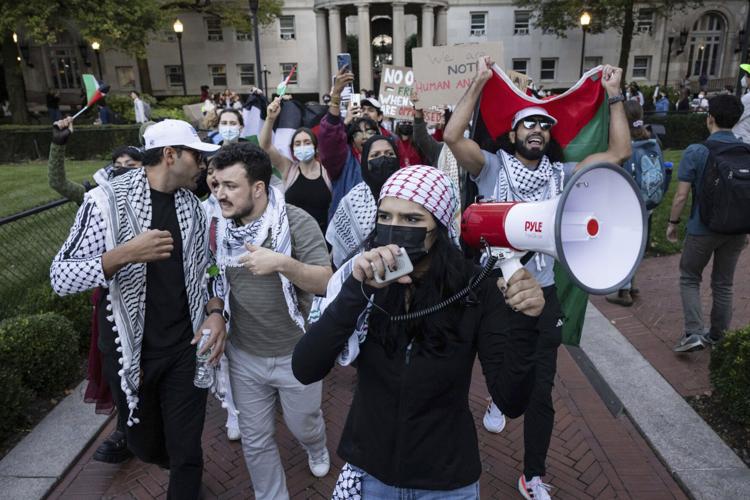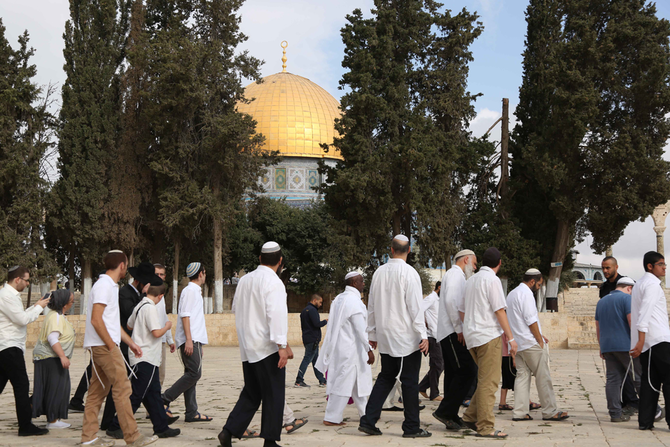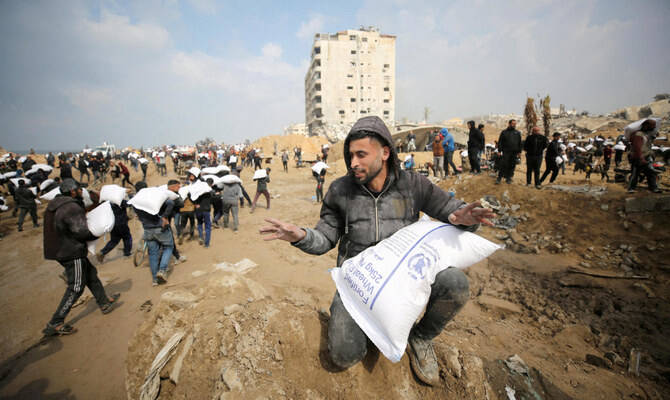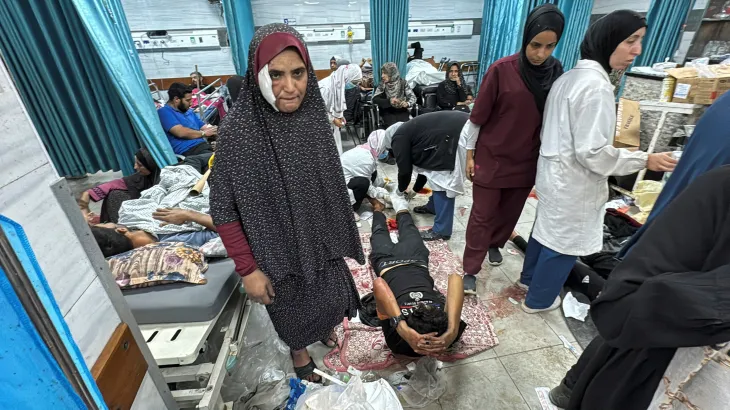The experience of being a detained Palestinian activist is challenging. However, those who find themselves in such a situation often focus on their mission rather than the obstacles. One detained activist currently in a Vermont Prison has expressed that he feels he is “in Good Hands.” This sentiment highlights the importance of hope and resilience in the face of adversity.
Despite the circumstances, the activist remains dedicated to his vision for peace and reconciliation. His determination serves as a reminder of the power of the human spirit, even within the confines of a prison. The journey of a Palestinian activist often encompasses struggles, but also a commitment to fostering dialogue and understanding across divides. The ability to say that one is “in Good Hands” while navigating the challenges of incarceration speaks volumes about maintaining faith in both personal beliefs and support systems.
As he reflects on his experiences, the activist emphasizes the need for continued peacemaking efforts, indicating that even from within the walls of a Vermont Prison, there is a platform for advocating change. His story resonates with many who share similar paths, standing as a testament to the resilience of Palestinian voices in the quest for justice.
The Experience Of A Palestinian In Vermont Prison
The experience of a Palestinian detainee in a Vermont prison can be profoundly transformative. Many individuals find themselves navigating complex emotions and thoughts about their identity, activism, and the broader implications of their experiences. The unique intersection of being a Palestinian in a Western prison system is marked by cultural dislocation, but it also presents opportunities for dialogue and understanding.
In the context of activism, being imprisoned can be both a challenge and a platform for continued advocacy. Many activists believe that imprisonment does not diminish their commitment to peacemaking; instead, it reinforces their determination to communicate their message. The phrase in good hands resonates strongly here, as many detainees report feeling supported by fellow inmates, prison staff, and organizations that advocate for their rights. This supportive environment can be a catalyst for personal growth and deeper engagement with the causes they stand for.
It’s important to recognize the emotional toll that this experience can take. The longing for home, combined with the stress of incarceration, can lead to profound reflections on peace and justice. Yet, through these reflections, many Palestinian activists articulate a vision of unity and hope, striving for peaceful coexistence. The journeys they undertake behind bars can be as impactful as those they fought for outside, reinforcing their commitment to bringing awareness to their plight and that of their people.
Overall, the experience of a Palestinian in a Vermont prison exemplifies the resilience of the human spirit. It underscores the importance of support systems and the strength that comes from community and shared purpose, reminding us all that even in challenging circumstances, individuals can focus on peace, advocacy, and transformative change.
Why The Phrase ‘In Good Hands’ Matters In Activism
The phrase ‘in good hands’ carries a significant weight in the context of activism, especially for those who find themselves in precarious situations. For a detained Palestinian activist in a Vermont Prison, this expression resonates deeply as it encapsulates both hope and trust. Being ‘in good hands’ suggests that there are individuals and communities rallying around the cause, providing emotional and practical support, even from afar. This phrase serves as a reminder that activism is not only about individual struggles but also about the collective strength that emerges when people unite for a common purpose.
When those involved in activism face adversity, knowing that they are in good hands can instill a sense of security. This is particularly poignant for the Palestinian activist, who, despite the limitations of his situation, focuses on peacemaking. The awareness that supporters are leveraging their resources to advocate for his cause underscores the importance of community in activism. Similarly, the Vermont Prison system has a role in shaping the experiences and narratives of its inmates, and the understanding that they are cared for can make a profound difference.
The phrase ‘in good hands’ is not just about physical safety; it embodies the assurance that the activist’s voice is amplified through solidarity, fostering resilience amid challenges. In an age where separation can often feel isolating, this phrase serves as a powerful reminder of the interconnectedness of all those who strive for justice and peace.
Exploring Peacemaking Efforts From Behind Bars
In the heart of Vermont, a Palestinian activist finds himself navigating the complexities of incarceration while holding onto a vision of peace. His current circumstances may seem dire, being held in a Vermont Prison, yet his spirit remains unbroken. As he engages with fellow inmates and advocates for social justice, he emphasizes the importance of dialogue and understanding in fostering change. This perspective sets a powerful example, illustrating that even from behind bars, one can actively pursue peacemaking efforts.
The phrase “in Good Hands” resonates deeply with him. It signifies trust—trust in his support systems, in the allies he’s cultivated, and in the larger mission of advocating for peaceful solutions to conflict. The concept highlights the relationships he has built, assuring him that his voice, despite its confinement, will continue to be amplified. This assurance serves as a foundation for his resilience and determination to inspire change, showcasing how an individual can influence their surroundings even within the restrictive walls of a prison.
His current situation invites us to reflect on the systemic challenges faced by Palestinian activists and the role of solidarity in movements advocating for justice. By sharing stories and facilitating discussions in the prison system, he demonstrates that peacemaking can occur within even the most oppressive environments. His unwavering commitment to dialogue serves as a beacon, reminding us that change is possible, regardless of the constraints imposed by governing bodies.
As the world focuses on the struggles faced by oppressed communities, the insights gained from those like him who are facing incarceration can help bridge gaps and inspire collaborative efforts for peace. In recognizing that those held captive can still champion the cause of justice and understanding, we can further our collective aims of fostering a world built on compassion rather than conflict.
Lessons Learned From The Vermont Prison Experience
The experience of a Palestinian activist in a Vermont Prison is not just a story of confinement; it is a rich tapestry of lessons woven through adversity. Many activists find themselves caught in legal battles that stretch beyond physical walls, where their spirit and commitment to peacemaking are continually challenged. Being incarcerated often amplifies the voices of these individuals rather than silencing them. As one detained Palestinian activist stated, despite the circumstances, he feels he is in Good Hands, a sentiment that reinforces the importance of hope and community support.
Such environments serve as incubators for resilience and philosophical reflection. While the walls may keep a person physically trapped, the mind remains free to explore ideas of justice, equality, and non-violent resistance. These lessons learned extend far beyond prison bars, shedding light on the broader context in which Palestinian activism occurs today. In understanding the experiences of those within the Vermont Prison, we gain insights into the unique challenges faced by Palestinian activists and how they persist in their fight for peace and justice.
The phrase ‘in Good Hands’ becomes significant when discussing how external support systems can uplift those behind bars. It emphasizes solidarity and mutual aid, further motivating activists to continue their work even under duress. For many, the connections forged during these trying times are what ultimately





